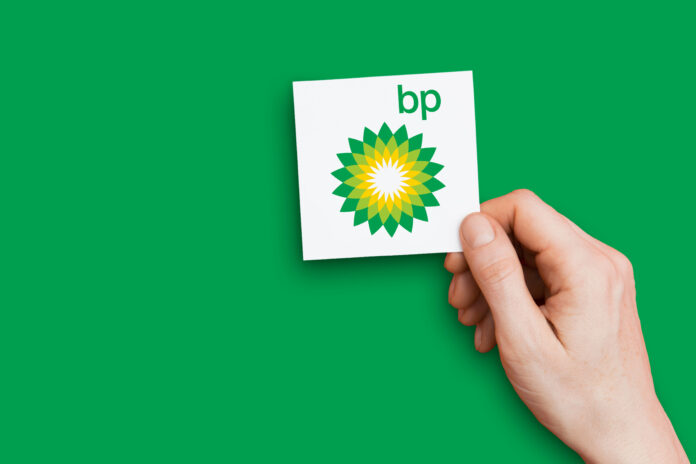
British Petroleum (BP) has begun pumping with its Argos platform in the Gulf of Mexico. The $9 billion offshore platform is said to increase crude oil production capacity in the region to 400,000 barrels a day. With this new platform, BP is heavily investing in the Gulf of Mexico and the oil-rich possibilities therein.
The launch of Argos comes at a tenuous time in the oil industry. While the economic effects of BP’s new platform are yet to be fully understood, Argos is a big step for domestic offshore oil in the US. In light of multiple global crises, BP’s Argos presents a wealth of possibilities and a brighter future for domestic energy security.
The $9 Billion Investment
Production began on the Argos in March 2018. The massive 60,000-ton platform was constructed in just under five years. This incredible undertaking by BP is both an impressive accomplishment and an extraordinary milestone in the oil industry.
The Argos platform is roughly the size of an American football field in length and width. At a staggering 27 stories tall, the Argos platform is a massive structure. This gargantuan facility is not only impressive in its size but in its journey to the United States. Transporting such a remarkable platform requires a monumental effort. The journey from South Korea aboard the Boskalis BOKA Vanguard heavy transport vessel took place over a whopping 60 days.
After making the 16,000-mile journey from South Korea, the Argos finally arrived in the United States in early April 2023. Upon landing in Texas waters, final production on the enormous industrial project was underway. Now, the incredible oil platform is complete and officially in operation.
The massive floating production facility represents a significant marker for domestic oil production and a potential boon for the economy. While in production, the Argos employed an estimated 800 workers and engineers. Now that the structure is complete and in operation, approximately 250 jobs were created to operate the modern marvel.
After the Deepwater Horizon explosion in 2011, BP has made significant efforts to increase safety and security measures drastically. As such, BP has made a conscious effort to provide a safe and reliable environment for drilling in the oil-rich basin in the Gulf of Mexico. To that effect, the Argos is equipped with state-of-the-art sensors, safety systems, and advanced procedures.
While safety is a primary consideration for the crew members of the Argos, protecting the environment is also a chief concern. BP has invested significant energy into safe and healthy oil drilling with the Argos. Interestingly, BP has committed to an integrated energy system amid an international withdrawal from fossil fuels. With the implementation of BP’s new offshore oil platform, BP plans on producing some of the “highest value lowest operational emissions barrels” in its Gulf of Mexico operations, BP said in a company statement.
Oil In the Gulf of Mexico
In 1998, the Gulf of Mexico quickly became a bread basket for oil production. Upon the discovery of the super basin beneath the waves, BP and other oil giants promptly capitalized on the rich potential in the Gulf. Argos is BP’s fifth platform in the area; however, since 2008, Argos has been the first BP platform to be built in these waters.
Argos is located in the Gulf of Mexico, about 190 miles south of New Orleans. Approximately 4,500 ft beneath the surface lies the immense Gulf of Mexico oil basin. Also known as “The Mad Dog” oil field, the Gulf of Mexico oil depository has enormous energy potential. As Argos continues its operation, it will help tap into and provide the energy that the world desperately needs.
When BP brought Argos online, it represented a massive investment in the Gulf of Mexico oil. The impact will be significant as Argos has the potential to get BP’s oil production in the area to around 400,000 barrels per day. As international oil supplies face threats around the world, investment in offshore domestic oil can help alleviate cost and supply.
OPEC Cuts Oil Production by One Million Barrels a Day
The Organization of Petroleum Exporting Countries’ (OPEC) decision to cut oil production by upwards of one million barrels daily has had a massive global impact. With the cost of oil being near high, OPEC’s shocking announcement has many concerned about what it will do to the economy. This cut by OPEC follows a previous cut of two million barrels per day in October of last year.
OPEC’s announcement sent the price of oil up by nearly 5%. The potential impact on international oil importation could be costly and ruinous. The increased competition between the West and OPEC is set to skyrocket after the astounding announcement. Furthermore, since OPEC members are allied with Russia (also known as OPEC+), this decision undermines the US’s efforts to suppress Russia’s income from international oil sales.
Despite Washington’s pressure to cut ties financially with Russia and Biden’s frantic pleas to Saudi Arabia, OPEC continued their partnership. OPEC’s actions could result in the US and its allies placing additional sanctions or taking action to continue its efforts of hampering Russia’s supply and income. However, with willing buyers for Russian oil in China and India, such sanctions’ effectiveness remains to be seen.
The Global Oil Crisis
As the war between Russia and Ukraine continues, the global supply impact continues to multiply. OPEC’s continued alignment with Russia complicates the issue even further. With the cost per barrel predicted to rise to $100, it’s no wonder that OPEC’s decision has stirred panic among speculators.
When the cost of oil rises, consumer prices typically rise in lockstep. As consumers see higher gas prices at the pump, the cost of groceries, supplies, and materials is soaring. The persistent global inflation crisis has many concerned about the accessibility of energy for citizens.
With international oil becoming more expensive and less feasible, BP’s launch of Argos could not come at a better time.
BP’s Perfect Timing
As the oil industry reels from OPEC’s decision, BP’s launch of Argos seems well-timed. Providing an increase in US oil production, Argos will surely boost domestic oil sentiment. BP proposes that Argos will have a gross production capacity of up to 140,000 barrels of oil daily. The increased production boosts BP’s gross oil capacity in the Gulf of Mexico by an estimated 20%. As Argos continues to extract oil, BP plans to dramatically and systematically increase production throughout 2023.
The potential that Argo brings to the table is exciting for US oil production. Argos has the potential to relieve some of the international oil crisis, and it is a major milestone in a step toward US oil independence.
As BP and Argos continue to drill in the Gulf of Mexico, we expect the impact on US oil production to be vital in the future—and indeed echoes President Biden’s own words, “We’re going to need oil for at least another decade….and beyond that.”
With Willow Project coming online and this state-of-the-art platform in the Gulf, Biden certainly seems to have capitulated to the realities of the energy transition, despite a firm stance that has heretofore been one of vilification towards the oil industry. Such an about-face from his “green” base has drawn the ire of millions who have petitioned the White House directly, and will provide interesting commentary as we near the 2024 presidential election.
Subscribe to Shale Magazine
Stay up to date on the latest news, whispers, and insight into the energy industry. At Shale Magazine, we never shy away from presenting the information that matters most to industry stakeholders. Subscribe to Shale Magazine to stay in the know, sign up for an upcoming event, or tune in to our latest podcast to always be one step ahead in the global energy transition.

Author Bio
Tyler Reed began his career in the world of finance managing a portfolio of municipal bonds at the Bank of New York Mellon. Four years later, he led the Marketing and Business Development team at a high-profile civil engineering firm. He had a focus on energy development in federal, state, and local pursuits. He picked up an Executive MBA from the University of Florida along the way. Following an entrepreneurial spirit, he founded a content writing agency. There, they service marketing agencies, PR firms, and enterprise accounts on a global scale. A sought-after television personality and featured writer in too many leading publications to list, his penchant for research delivers crisp and intelligent prose his audience continually craves.














